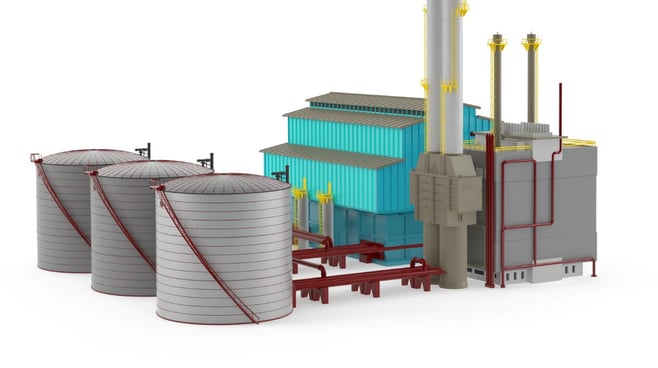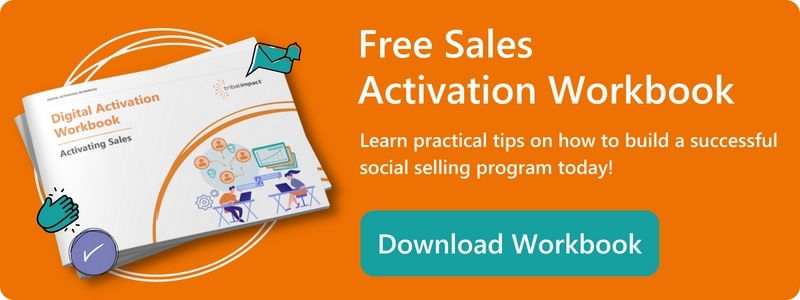
With the rise of IoT, Big Data and AI robotics - and people are fearing job losses from “the rise of the robots” - you’d be forgiven for thinking that manufacturing would also be at the forefront of another digitalisation trend: social selling.
Social selling has moved from a buzzword trend to a staple selling strategy for many industries. 75% of B2B buyers now use social media to help them make purchasing decisions and social selling leaders are 51% more likely to reach quota than their non-social counterparts.
But as President and CEO of manufacturing supplier directory platform ThomasNet writes in Forbes:
“A greater irony is that as their [manufacturer’s] facilities are optimized to handle the work – and as a strong economy and a more favorable competitive position on the global stage deliver significant opportunities for growth – some manufacturers are struggling to sell into that opportunity because they’ve lagged behind in embracing digital best practices in their marketing and sales efforts.”
Another irony? Social selling is perfectly placed for manufacturers - the very industry lagging behind others. I’ll explain why in this blog. But first, a quick introduction to what social selling is.
What Is Social Selling?
Social selling involves much more than awareness-building social media marketing. It involves leveraging your social network to find the right prospects, build trusted relationship, researching an account’s specific needs and listening to what they’re saying online and to you. Then providing your prospects with highly personalised content at their time of need and as those needs change. It helps them to advance their purchase instead of suffering from “information overwhelm” that causes them to make decisions they regret.
Why Manufacturers Should Embrace Social Selling
We could list the ways that social selling is a great match for B2B business but there are a few reasons why social selling is particularly suited to manufacturing organisations. And why those that embrace it earlier than their competitors will see a significant competitive advantage.
Manufacturing Buyers Are Even Harder To “Sell” To
As we’ve seen, social selling has become such a popular strategy because buyers don’t want to be “sold” to. They’re increasingly researching their solutions and providers online and social networks are becoming an influential source of information.
When you consider one of the key manufacturing buyers - Design Engineers - it’s even more important. They typically fall under the Analyst profile - which means they:
- Take time to think things through when making decisions
- Use a deliberate, methodical approach when solving problems
- Are comfortable analyzing large amounts of information
In short: they’re more likely than most to want to self-serve their way through the buying journey with credible content. Which is why social selling - which focuses on relationship-building and providing useful content where and when buyers are seeking information - is even more important in the manufacturing industry.
Your Buyers’ Passion = Greater Sales Insights
You just need to look at GE Electric’s social media pages to see that manufacturing and engineering audiences’ passion for the technology and solutions they work with can translate to higher engagement.
This doesn’t stop at the marketing brand awareness level, though. It goes much deeper. They are frequently on LinkedIn (and even Reddit) groups discussing and analysing complex problems.
Your buyers aren’t happy with superficial discussions on social media - and that means you can get much deeper insights into what they love and what they would like to see improved with the products and solutions you offer.
Social Selling Suits A Complex Buying Environment
B2B manufacturer salespeople have to navigate one of the most complex buying environments. The sales cycles are long (even compared with other B2B industries), deal sizes are particularly high-value and the buying process involves an intricate network of channel and distributor relationships.
With tools such as LinkedIn Sales Navigator it’s much easier to identify perfect-fit customers, exactly who is in the buying circle, as well as those who influence it. It’s also much quicker to identify sales triggers that identify that they’re in the market for your product or service now - such as growth in particular departments or new key hires.
In fact, a survey by CSO Insights and Seism shows that the top primary benefits of using social selling tools cited by B2B professionals was reducing the amount of time spent researching accounts and contacts (39%).
If you want to get ahead of the competition, the time is now to embrace it. While the industry is generally still lagging behind others, we’re seeing an increase in manufacturing companies seeking social selling training and support.
What manufacturing salesperson wouldn’t want to reach and influence buyers before they reach the RFQ stage - - when the technical specifications are often non-negotiable and there’s no chance to explore what might be a better-fit product or solution?
Quickly get up to speed with social selling and discover quick tips to help you get started on LinkedIn with our Social Selling Taster Webinar. Alternatively, if you’re a marketing or sales professional in your organisation and need guidance on getting senior leadership buy-in, we’d be more than happy to offer you free guidance. Simply get in touch to have a short, no-commitment conversation.

